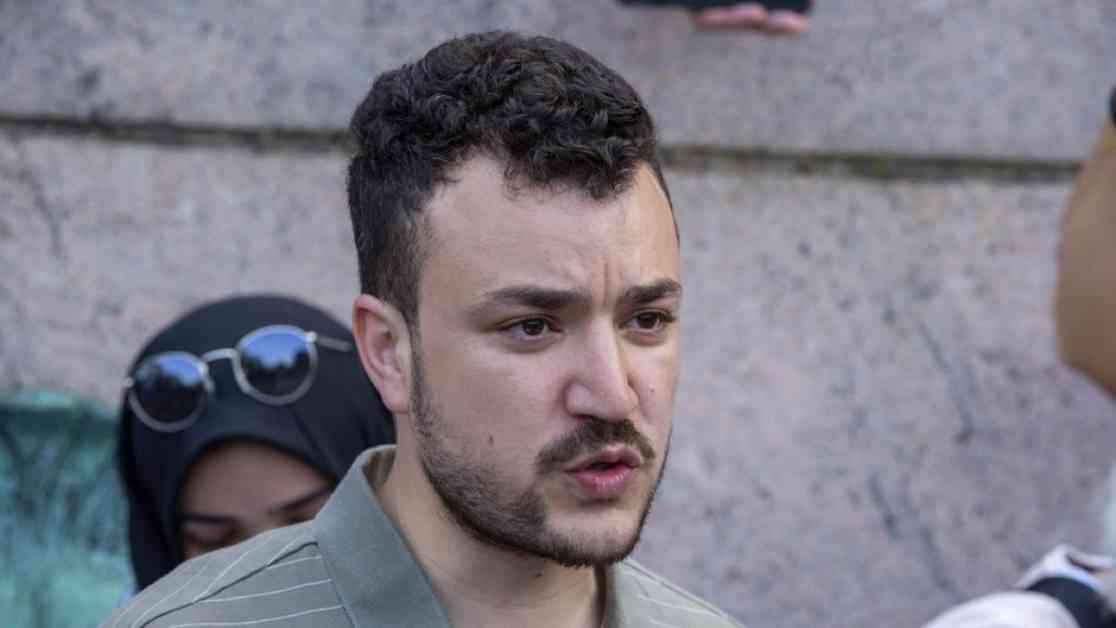Summary: Mahmoud Khalil, a prominent Palestinian activist involved in the Columbia University student protests, was arrested by ICE on Saturday under the claim of a State Department order revoking his green card. The arrest comes amidst President Trump’s deportation threats against foreign students and agitators in protest of Israel’s actions in Gaza.
In a shocking turn of events, Mahmoud Khalil, a well-known Palestinian activist at Columbia University, found himself at the center of a tumultuous situation when federal immigration authorities took him into custody last Saturday. The arrest, purportedly based on a State Department order to revoke his green card, sent shockwaves through the university community and beyond.
The Arrest and Legal Confusion
Mahmoud Khalil was apprehended by Immigration and Customs Enforcement (ICE) agents at his university-owned apartment located just a stone’s throw away from Columbia’s Manhattan campus. His attorney, Amy Greer, recounted the harrowing events as several agents entered the building and detained Khalil under the guise of a State Department directive. The bewildering aspect of the situation arose when the agents, upon learning that Khalil was a permanent resident with a green card, proceeded to revoke that as well.
The legal intricacies of Khalil’s case added further confusion and distress to an already troubling situation. Despite being a recent graduate of Columbia, Khalil’s status as a green card holder should have provided him with a sense of security and stability in the United States. However, the sudden revocation of his legal status left both him and his attorney perplexed and concerned about the motives behind such a drastic measure.
Political Backlash and Campus Tensions
The timing of Khalil’s arrest amidst President Trump’s inflammatory rhetoric and crackdown on foreign students and protest leaders added a politically charged dimension to the unfolding events. The administration’s threats to deport and imprison individuals involved in protests against Israel’s actions in Gaza cast a shadow of fear and uncertainty over activists like Khalil who dared to speak out against perceived injustices.
Moreover, the administration’s decision to target Columbia University specifically, citing alleged failures to address antisemitism on campus, raised concerns about the government’s overreach and punitive actions against academic institutions. The announcement of substantial funding cuts only served to exacerbate tensions between the university and federal authorities, creating a volatile environment for students and faculty alike.
As news of Khalil’s detention spread, expressions of solidarity and outrage reverberated across social media platforms and within the university community. His role as a vocal advocate for Palestinian rights and a key figure in the student protests at Columbia had made him a target for scrutiny and intimidation, but it also galvanized support from those who shared his commitment to social justice and human rights.
In the face of uncertainty and adversity, Mahmoud Khalil’s arrest serves as a stark reminder of the challenges and risks faced by activists who dare to challenge the status quo and speak truth to power. As the legal proceedings unfold and the broader implications of his case come to light, one thing remains clear – the fight for justice and equality is far from over, and individuals like Khalil will continue to stand up for what they believe in, no matter the cost.


